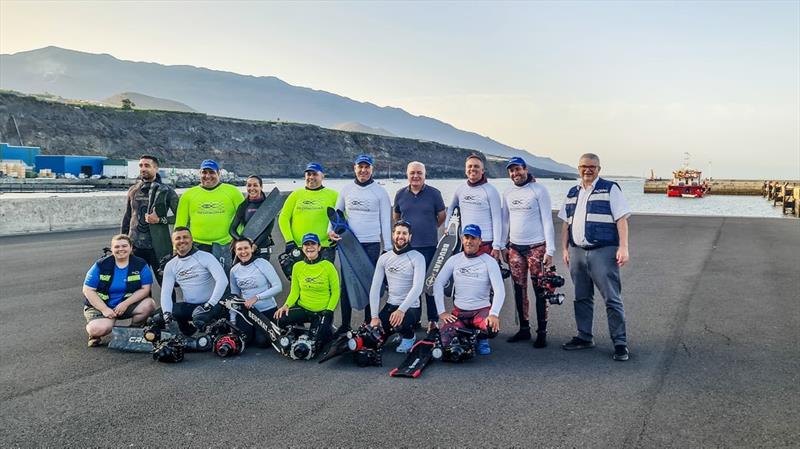
PLOCAN launches biological observation campaign using freediving in Lava Deltas
by PLOCAN 21 Jul 2024 12:57 UTC

PLOCAN launches biological observation campaign using freediving in Lava Deltas © PLOCAN
The Canary Islands Oceanic Platform (PLOCAN) is organizing innovative underwater exploration and biological monitoring days within the context of citizen science in the waters surrounding the lava deltas formed during the Tajogaite volcano eruption in La Palma. This initiative, scheduled for July 20 and 21, highlights the innovative approach of citizen collaboration and the use of freediving for marine conservation.
The campaign will conduct a comprehensive inventory of the area's biodiversity, complemented by an audiovisual catalog of the ecosystems affected by the volcanic eruption. "The goal of the sampling is to create a biodiversity inventory of the area, resulting in a species list and an estimate of their relative abundance," explained Joaquín Hernández, director of PLOCAN. He emphasized the importance of citizen participation and the need to contribute to the area's sustainability through science-based economic activities.
The campaign's inauguration also featured Miguel Ángel Morcuende, Director General of Natural Spaces and Biodiversity of the Regional Ministry of Ecological Transition and Energy, which funds the DELTA project along with the State Secretariat for the Environment. In addition to the technical team from PLOCAN's island delegation and over a dozen professional freedivers, the event also includes collaboration from representatives of the Canary Islands Government's RedPROMAR.
The data collected during these biological observation days in the lava deltas formed by the Tajogaite volcano will be crucial for understanding the recovery and evolution of the marine ecosystem. "This information will not only enrich scientific knowledge but also serve as a basis for future conservation policies and sustainable management of marine resources," said Morcuende, who thanked the volunteer freedivers "from the heart" for "helping to learn and share knowledge about life and our environment, which will benefit future generations."
This campaign represents a milestone in marine research in the Canary Islands and sets a precedent for future citizen science projects in ocean conservation. "PLOCAN thus reaffirms its commitment to scientific excellence and community involvement in protecting our seas," added the Director General of Natural Spaces and Biodiversity.
Community-Driven Marine Research
The campaign will involve 12 freediving experts and species identification specialists, many of whom are passionate citizens collaborating with PLOCAN's scientific team. According to the director of PLOCAN and coordinator of the DELTA project, this synergy between science and community not only enriches research but also fosters greater environmental awareness among the local population.
Equipped with high-resolution underwater cameras, the divers will explore four different areas near the lava deltas and the Roques de Don Pedro as a control point. Their mission is to capture images to create a comprehensive inventory of marine biodiversity in the area.
PLOCAN encourages the local community to actively participate in marine conservation, whether through responsible diving, beach cleanups, or simply sharing knowledge about the importance of marine ecosystems. "We can all be guardians of the sea and contribute to protecting our oceans and the Canary coast," added the CEO of PLOCAN.
Freediving: A Strategy for Observation and Conservation
Freediving, or underwater photography, is a sport that involves diving without breathing apparatus to photograph a wide variety of species. This requires the ability to visually recognize species, their habitats, and behaviors.
"We have involved prominent athletes from the Canary Islands and La Palma, combining their freediving skills and knowledge of local ecosystems to enhance biological monitoring with precise visual data," explained Hernández.
He believes that using freediving techniques allows for the observation and documentation of marine life with minimal impact on the ecosystem, as it is a non-invasive methodology. "This is crucial for studying sensitive environments like those newly formed by the volcanic eruption," concluded the DELTA project coordinator.